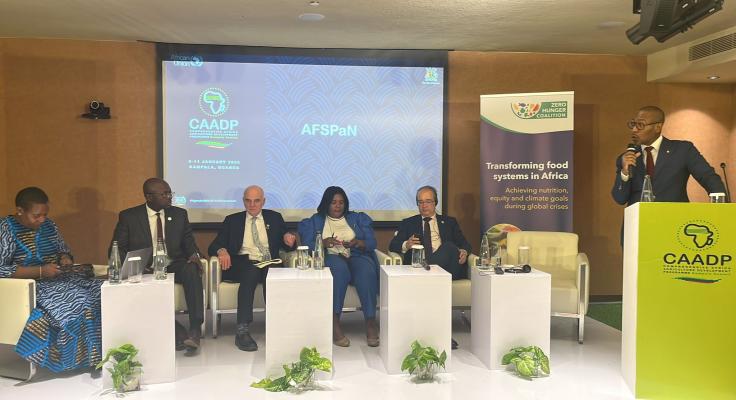
Food systems transformation is back on Benin’s table
Benin is reviving its efforts for a food systems transformation after a three-year pause.
But why now? Is this a response to impending crisis, a strategic initiative or an attempt to align with global trends.
On June 13-14 in Bohicon, the National Convenor brought together a wide range of stakeholders including Government officials, representatives from international organisations, development agencies, academicians, consumer groups, private sector and farmer organisations. Benin’s approach to involving this diverse group lays the groundwork for meaningful and collaborative change, ensuring that all voices are heard and perspectives considered.
Sylvia Lopez-Ekra, Deputy Director from the United Nations Food Systems Coordination Hub, praised the approach and expressed support for the process, laying out six-step measures in the UN Secretary General’s recommendation.
Embedding food system transformation in national development and climate plans
Adopting a multisectoral governance approach
Investing in research, data, science and innovation
Promoting inclusivity among stakeholders
Engaging with the private sector
Accessing new financial opportunities

Clock is ticking
David Laborde from the FAO brought a sobering reminder: Benin population is expected to double by 2050, so we shall imagine the strain on food resource and the environment. The FAO’s global roadmap, Achieving SDG 2 without breaching the 1.5 °C threshold, underscores an urgent call for action that can help guide the food system priority areas. Climate action and reducing inequalities aren’t just nice-to-have; they are interlinked and should ensure food security and nutrition.

Defining the national priorities
The national consultation identified priorities corresponding to the five UN Action Tracks.
Ensure access to safe and nutritious food for all. Stakeholders call for strengthening nutrition intervention and encourage behaviour changes. This includes promoting the production and consumption of nutrient-rich foods, such as vegetables, school meals using locally sourced ingredients.
Shift to sustainable consumption patterns. Priorities include promoting sustainable production methods, encouraging the consumption of local products, adopting good nutritional practices, and leveraging existing UN programmes such as UNICEF’s nutrition programme and national initiatives like the National Integrated School Feeding Programme and the Early Childhood Nutrition and Development Project.
Boost nature-positive production, adopting environmentally friendly production practices with proven effectiveness. These practices include the system of rice intensification, the integration of farming and livestock rearing, crop rotation and intercropping. Stakeholders also recommended the increased use of organic fertilisers and crops that benefit the soil.
Advance equitable livelihoods. The priorities should focus on strengthening social protection programmes and improving employment opportunities. This could be achieved by facilitating credit access using the National Agricultural Development Fund and scaling-up micro-credit programmes such as Alafia. Stakeholders also called for the mapping of vulnerable areas and harmonising the frameworks used to define vulnerability profiles. Finally, stakeholders acknowledged the role of the private sector as an economic driver and called for support measures to encourage their investment.
Build resilience to vulnerabilities, shocks and stress. This can be achieved through the implementation of the country’s Climate Smart Agriculture strategy and the promotion of environmentally friendly production systems, including sustainable land management, climate change adaptation and integrated water resources management. Stakeholders also encouraged the dissemination of agro-climatic forecasts in local languages and improving access to climate-resilient crop varieties.
In addition to these priorities, participants in the national consultation also highlighted the importance of empowering youth and women and supporting small producers by facilitating market access through infrastructure improvements.
The Zero Hunger Coalition looks forward to working with stakeholders in Benin. As a next step, the Coalition will help to develop the national food systems pathway and action plan. This will include evidence and costing to effectively and efficiently transform food systems in the country.




